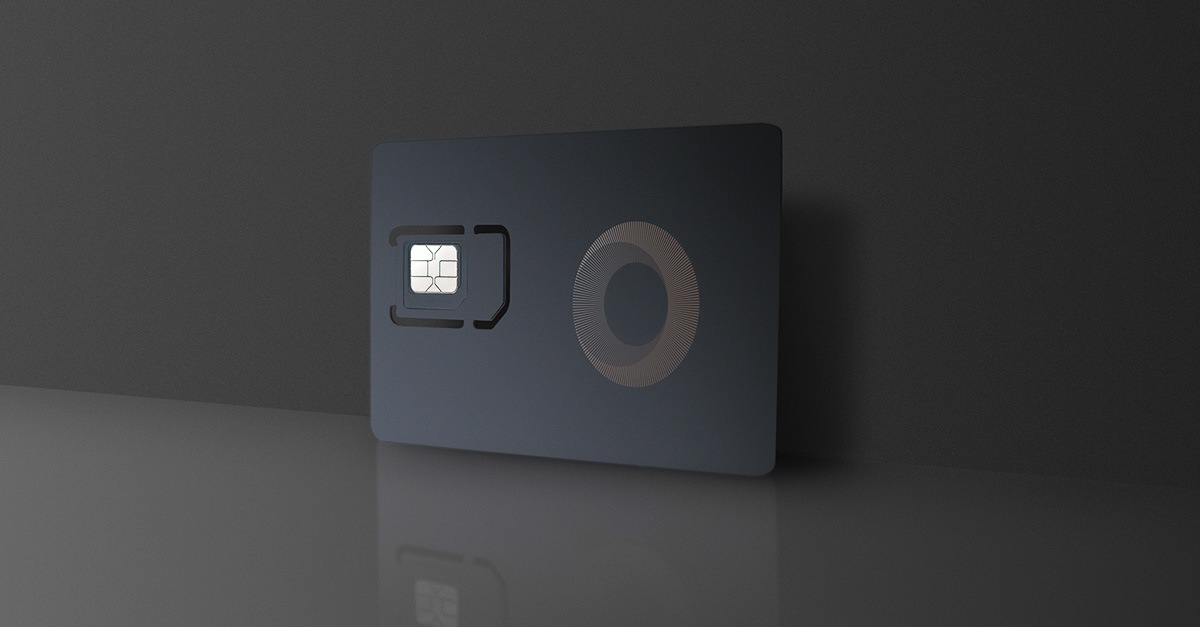Remote Monitoring Non-Invasive Devices for IoT Monitoring
The rapid increase within the number of autos on roads worldwide has made efficient vehicle monitoring mechanisms essential. The introduction of IoT connectivity for vehicle tracking techniques has significantly remodeled how businesses, governments, and individual customers manage and monitor their automobiles. By harnessing the ability of the Internet of Things (IoT), these methods offer real-time data and insights that enhance effectivity and security.
IoT connectivity enables vehicles to speak and interact with cloud-based platforms. This real-time communication facilitates tracking autos' places, monitoring their performance, and managing maintenance schedules. The amassed knowledge is invaluable for fleet managers aiming to optimize routes and minimize gas consumption, thus improving total operational efficiency.
Role Of Smart Sensors In Iot Definition of IoT Remote Monitoring
The integration of GPS know-how within IoT-connected vehicles has further enhanced monitoring capabilities. By triangulating indicators from satellites, these methods present precise location data. This stage of accuracy helps in decreasing miscommunication and errors that always come up with conventional monitoring methods. Companies can easily pinpoint their autos' places, ensuring timely deliveries and better resource allocation.
Furthermore, IoT connectivity for vehicle tracking systems contributes to heightened security. Fleet managers can monitor driving behaviors, similar to rushing and harsh braking, by accessing real-time knowledge. This information permits for quick interventions and training classes that promote safe driving habits amongst drivers. Consequently, the danger of accidents decreases, benefiting both operators and street users.
A important advantage of IoT-enabled tracking systems is predictive maintenance. By frequently collecting data relating to a vehicle's performance, techniques can alert operators to potential points before they escalate into expensive repairs. This proactive maintenance strategy not solely extends the lifespan of automobiles but also minimizes downtime, making certain that fleets stay operational.
Scalability is another key function of IoT connectivity. As companies develop, their vehicle tracking needs evolve. IoT systems are designed to adapt. Whether managing a handful of autos or an in depth fleet, the technology could be scaled accordingly. This flexibility makes it an attractive choice for startups and large firms alike, permitting them to cater to their distinctive logistical necessities.
Remote Monitoring Solutions Cost Efficiency of IoT Monitoring

Environmentally acutely aware organizations additionally profit from IoT connectivity for vehicle monitoring systems. By analyzing fuel consumption data, they'll implement strategies that reduce emissions. With increased awareness about climate change, more corporations are prioritizing sustainability. IoT technology enables them to meet their eco-friendly goals while maintaining competitiveness in their respective markets.
The implementation of IoT solutions in vehicle tracking additionally promotes transparency. Clients and prospects are more and more demanding real-time updates regarding their shipments. With IoT-driven tracking systems, companies can present precise arrival times and standing updates. This level of transparency builds belief and enhances buyer satisfaction, crucial parts for any thriving enterprise.
Iot Remote Monitoring And Control Advantages of Remote Monitoring in IoT

Cost savings generated from IoT connectivity are substantial. By reducing gas consumption, slicing maintenance expenses, and bettering general efficiency, businesses can notice vital reductions in operational costs. This monetary incentive encourages more firms to adopt vehicle tracking systems, leading to widespread market growth and developments in know-how.
Privacy and safety considerations are inherent in phrases of tracking systems. However, developments in security protocols related to IoT connectivity enhance the safety of sensitive data. Encryption and safe networks are vital options that safeguard both companies and their clients. Remote Monitoring. As security measures proceed to evolve, they bolster stakeholder confidence in IoT-driven options.
The future of IoT connectivity in vehicle monitoring systems appears promising. With ongoing developments in technology, features similar to synthetic intelligence and machine learning have gotten integral to those systems. These technologies can analyze vast amounts of knowledge for patterns and insights, enabling smarter decision-making processes. As vehicle tracking turns into more clever, companies will be higher geared up to address modern challenges.
Role Of Smart Sensors In Iot Unlocking IoT Remote Monitoring Potential
As connectivity improves, we're also witnessing the rise of user-friendly interfaces. Mobile purposes and web platforms streamline how companies more interact with their monitoring systems. Users can entry real-time knowledge at their fingertips, making it simpler to manage fleets effectively. This level of convenience encourages wider adoption throughout various industries.
Collaboration amongst stakeholders is another important trend inside the IoT vehicle monitoring landscape. Partnerships between tech companies and logistics firms foster improvements that improve monitoring capabilities. With the pooling of experience and sources, numerous options emerge, catering to particular sector needs. This collaboration not solely drives technological advancements but in addition accelerates market penetration.

In conclusion, IoT connectivity for vehicle monitoring systems is revolutionizing the transportation and logistics industries. The advantages lengthen past simple monitoring to embody safety, efficiency, sustainability, and buyer satisfaction. As IoT know-how continues to evolve, so too will its applications, creating even more opportunities for development and improvement. The integration of advanced analytics and user-friendly platforms will additional enhance person expertise, guaranteeing that vehicle monitoring stays at the forefront of operational management.
Iot Remote Asset Monitoring Solution Critical Remote Monitoring and Maintenance
- Enables real-time location data collection, enhancing fleet management efficiency and response instances.
- Facilitates maintenance schedules by way of constant monitoring of car health and efficiency indicators.
- Supports geofencing functions that present alerts when autos enter or depart designated areas.
- Enhances security by enabling remote immobilization of vehicles in case of theft or unauthorized use.
- Integrates with cell applications for user-friendly access and monitoring of car standing on-the-go.
- Promotes gas effectivity by monitoring driving behaviors and providing insights for optimization.
- Allows for communication between autos and infrastructure, paving the way for smart city initiatives.
- Utilizes cloud platforms to mixture information, enabling superior analytics and predictive modeling.
- Ensures compliance with laws by automatically logging essential knowledge and documentation.
- Supports a variety of connectivity options, together with cellular, satellite, and LPWAN technologies for versatile purposes.undefinedWhat is IoT connectivity in vehicle tracking systems?undefinedIoT connectivity refers to the integration of Internet of Things technologies that permit autos to speak with centralized methods. This enables real-time monitoring, monitoring of vehicle health, and efficient information management.
How does IoT improve vehicle monitoring systems?undefinedIoT enhances vehicle tracking techniques via improved information assortment and transmission. Sensors capture very important information such as location, speed, and diagnostics, that are communicated to cloud platforms for analysis, offering useful insights for fleet management.
What are the advantages of utilizing IoT for vehicle tracking?undefinedUsing IoT for vehicle monitoring offers advantages corresponding to improved operational effectivity, reduced theft threat, real-time visibility of assets, enhanced security options via predictive maintenance, and better route optimization - Iot Remote Monitoring And Control.
Is IoT connectivity secure for vehicle tracking?undefinedIoT connectivity may be secure if firms implement strong encryption protocols, regular software program updates, and robust authentication methods. It is crucial to follow greatest practices to safeguard delicate data towards potential cyber threats.
Remote Monitoring Using Iot Applications of IoT Remote Monitoring
Can vehicle tracking systems utilizing IoT work offline?undefinedWhile IoT vehicle tracking techniques primarily rely on web connectivity for real-time updates, many methods have offline functionalities. They can store knowledge locally and addContent it once they reconnect to a community, making certain no loss of info.

How do I choose the right IoT vehicle tracking system?undefinedChoose an IoT vehicle tracking system based on your specific wants, such as fleet size, required features, information integration capabilities, person interface, buyer help, and cost-effectiveness. Research and examine options to search out the best match.
Remote Monitoring Stand-Alone Remote Monitoring Devices
What kind of knowledge can IoT vehicle monitoring techniques provide?undefinedIoT vehicle monitoring techniques can present numerous knowledge, including real-time GPS location, mileage, gasoline consumption, maintenance alerts, driver habits analytics, and traffic situation reports, helping businesses make informed decisions.
Are there business laws for IoT vehicle tracking?undefinedYes, there are business laws and standards regarding knowledge privacy, vehicle emissions, and safety that organizations must adhere to when implementing Click Here IoT vehicle tracking methods. Understanding these laws helps ensure compliance and promotes responsible utilization.
Role Of Smart Sensors In Iot Definition of IoT Remote Monitoring
What is the method ahead for IoT in vehicle monitoring systems?undefinedThe future of IoT in vehicle monitoring techniques looks promising, with advancements in AI and machine learning being built-in for predictive analytics, elevated automation for fleet management, and broader adoption of smart transportation ecosystems enhancing operational capabilities.
How can small businesses benefit from IoT vehicle monitoring systems?undefinedSmall companies can profit from IoT vehicle tracking techniques by gaining higher control over their belongings, lowering costs through environment friendly route planning and gas administration, bettering customer service with timely deliveries, and minimizing vehicle downtime via proactive diagnostics.